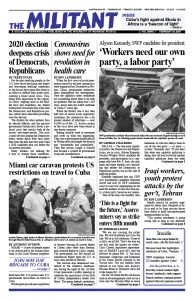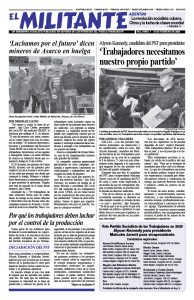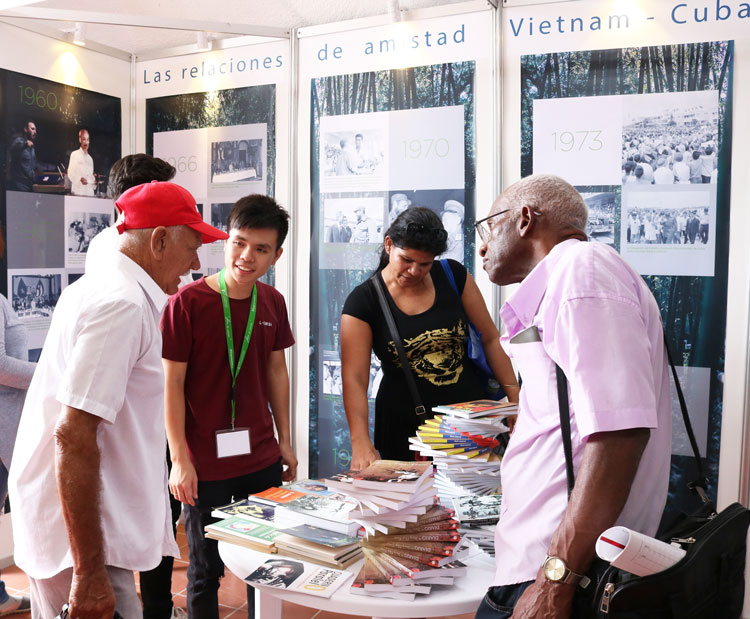HAVANA — The history of solidarity between revolutionary Cuba and Vietnam in the struggle against imperialist domination is a major theme of this year’s Havana International Book Fair, which opened here Feb. 6. Vietnam is the country of honor at the 10-day festival of literature and culture.
The book fair has featured book presentations, panel discussions and cultural performances highlighting Vietnam’s rich history and culture. The well-attended Vietnamese pavilion exhibits books on topics from art and literature to the hard-fought liberation war against Washington in the 1960s and ’70s.
A large multipanel photo display there depicts the solidarity the Cuban people and government gave the Vietnamese during their struggle for reunification against the U.S. rulers’ brutal war and occupation of the South. The display begins in December 1960, when Cuba’s new revolutionary government established diplomatic relations with Hanoi.
The exhibit shows the 1963 founding of the Cuban Committee in Solidarity with South Vietnam, headed by revolutionary leader Melba Hernández. Other photos show the crowds of Cubans who welcomed visits by Vietnamese freedom fighters to Havana, and the equally warm response Cuban revolutionaries received in northern Vietnam during the war.
The Vietnamese “spirit of struggle was like the Cuban spirit,” said Nguyen Quang Thieu, vice president of the Union of Writers of Vietnam, at a panel on the 60th anniversary of Cuba-Vietnam relations.
Thieu pointed to the key factors that led the Vietnamese to prevail over U.S. imperialism. “There were two sides to our victory — our revolutionary determination and the growing unwillingness of U.S. soldiers and the U.S. public to carry on the war,” he said.
The panel included renowned Cuban revolutionary journalist Marta Rojas, who in 1965 was the first Latin American war correspondent to visit National Liberation Front combatants in areas of southern Vietnam freed from U.S. control. Also speaking was Nguyen Phuong Nga, president of the Vietnam-Cuba Friendship Association.
In another program, Antonio Guerrero, one of five Cuban revolutionaries who spent up to 16 years in U.S. prisons, joined members of the Vietnamese delegation and exchanged poetry in a presentation of Diario de prisión (Prison Diary), a book of poems by Ho Chi Minh, the central leader of the Vietnamese independence struggle.
Several books available at the fair, either in Spanish or Vietnamese, included the 19th century account of Vietnam’s anti-colonial fight against French rule that José Martí, Cuba’s national hero, wrote for Cuban children.
In a presentation of his book Fidel: Un guerrillero antillano en el paralelo 17 (Fidel: A Caribbean guerrilla at the 17th Parallel), Cuban journalist José Ángel Llamo Camejo described Fidel Castro’s visit to Vietnam in September 1973. Castro crossed the 17th Parallel separating North and South Vietnam, becoming the first head of state to visit the liberated zones shortly after Washington had been forced to withdraw all its ground troops.
The Vietnamese won full control of their unified country in April 1975 — a victory against U.S. imperialism that inspired working people worldwide.


